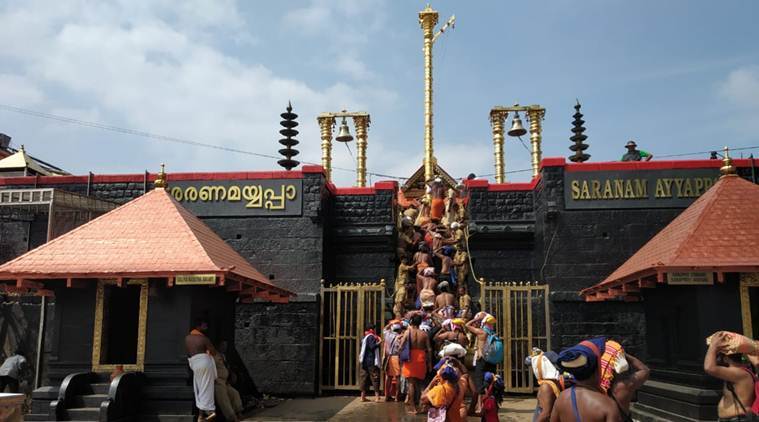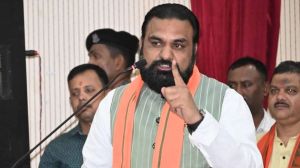Stay updated with the latest - Click here to follow us on Instagram
Sabarimala review pleas: Nine-judge bench to hear related matters from January 13
The top court had, in a 3:2 verdict on November 14, said its September 28, 2018 decision lifting age restrictions on entry of women to the Sabarimala hill shrine may impinge on the affairs of other religions too and required a more detailed examination.
 The court was of the view that all these issues may be overlapping and covered by the 2018 Sabarimala verdict.
The court was of the view that all these issues may be overlapping and covered by the 2018 Sabarimala verdict.
A nine-judge Constitution bench of the Supreme Court will start hearing matters arising out of the Sabarimala review petitions from January 13.
The top court had, in a 3:2 verdict on November 14, said its September 28, 2018 decision lifting age restrictions on entry of women to the Sabarimala hill shrine may impinge on the affairs of other religions too and required a more detailed examination.
Accordingly, the court decided to keep the review petitions pending till a “larger bench of not less than seven judges” took a call.
The then Chief Justice of India, Ranjan Gogoi, who wrote the majority judgment, said that “debate about the constitutional validity of practices entailing into restriction of entry of women generally in the place of worship is not limited to” the Sabarimala case, “but also arises in respect of entry of Muslim women in a Durgah/Mosque as also in relation to Parsi women married to a non-Parsi into the holy fire place of an Agyari”. The court said, therefore, “it is time that this Court should evolve a judicial policy befitting to its plenary powers to do substantial and complete justice and for an authoritative enunciation of the constitutional principles by a larger bench of not less than seven judges”.
The verdict pointed out that the question regarding “powers of the constitutional courts to tread on the question as to whether a particular practice is essential to religion or is an integral of the religion” was also pending before it in connection with petitions against female genital mutilation in Dawoodi Bohra community and that this question needed to be settled too.
The court was of the view that all these issues may be overlapping and covered by the 2018 Sabarimala verdict.
These issues, the court said, would include defining constitutional morality, whether it’s overarching morality in reference to preamble or limited to religious beliefs or faith. “There is need to delineate the contours of that expression, lest it becomes subjective,” the CJI wrote.
The verdict also suggested some other issues for likely consideration by the larger bench — the interplay between freedom of religion under Articles 25 and 26 of the Constitution and other provisions in Part III, particularly Article 14; sweep of expression ‘public order, morality and health’ occurring in Article 25(1) of the Constitution; extent to which court can enquire into whether a particular practice is an integral part of the religion or religious practice of a particular religious denomination or should that be left exclusively to be determined by the head of the section of the religious group; the meaning of the expression ‘sections of Hindus’ in Article 25(2)(b) of the Constitution; whether “essential religious practices” of a religious denomination, or even a section thereof are afforded constitutional protection under Article 26 and the permissible extent of judicial recognition to PILs in matters calling into question religious practices of a denomination or a section thereof at the instance of persons who do not belong to such religious denomination.







